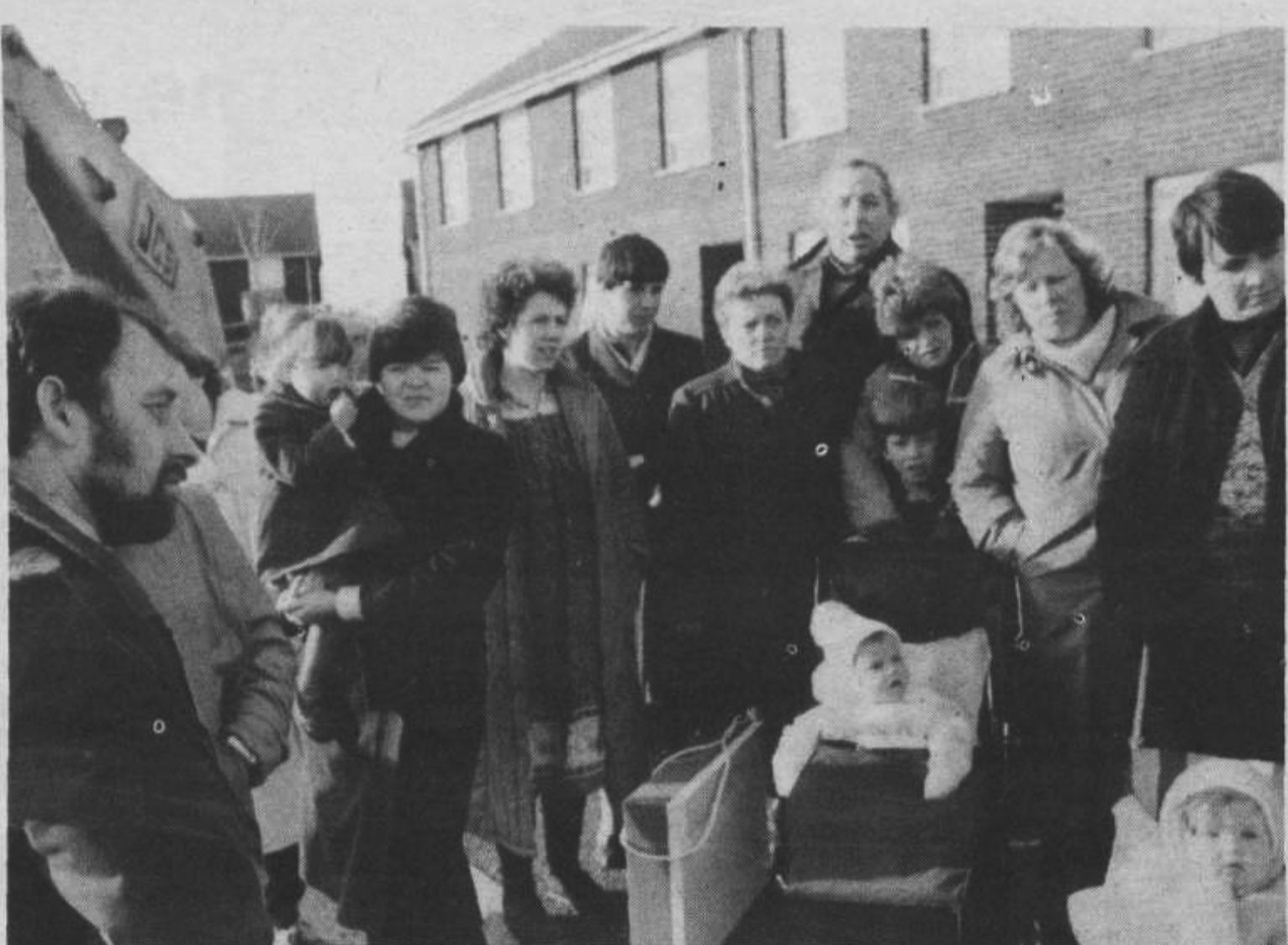WE look at the stories that were making the headlines in the Andersonstown News this week in 1983
Not for the first time Twinbrook is out in the cold
FOLLOWING a week which saw Twinbrook’s district heating system break down on three occasions, residents of Thornhill and Surnmerhill have formed a Heating Action Committee.
The Committee will press the Executive for the speedy installation of solid fuel heating in the area. There is widespread dissatisfaction with the district scheme.
Last Thursday angry parents confronted Housing Executive area Manager, Danny Cochrane, during a street protest against the repeated failures in the heating system.
Tempers had risen throughout the estate on Thursday morning with the news that only 13 superser heaters were to be distributed to “priority cases" among the 87 families hit by the fault. One irate mother slammed the Executive offer as "a disgrace".
"Cold doesn't have any priorities – it enters all the homes," she told the Executive manager.
At the meeting in the parochial Hall on the same evening residents demanded that the date for heating conversions be brought forward from the proposed date of mid-1984.
The Twinbrook Tenants Association has also announced its intention of conducting a survey in the Summerhill area to document the extent of the heating problem.
Battle to ban plastic bullet goes to Europe
MRS Kathleen Stewart, the Turf Lodge woman whose 13-year old son Brian was killed by a plastic bullet in 1976, will be bringing the United Kingdom before the European Commission of Human Rights in an attempt to have plastic bullets banned.
The breakthrough in Mrs Stewart's six and a half year long struggle to have the truth about her son's murder revealed, came after Richard Balfe MEP, Lord Gifford and the National Council for Civil Liberties took up her case.
"I haven't given up this fight because I want the world to know that my son was killed by armed men who can still come into any area and murder children," Mrs Stewart, a Committee Member of 'Silent Too Long' told the Andersonstown.
Brian Stewart died after being hit on the head by a plastic bullet fired by a British soldier in Turf Lodge on October 10th, 1976. The area was quiet at the time of the shooting, and Brian was returning from a local shop. Her case against the British Government is being taken under Article Two of the European Convention on Human Rights which states that:
"Everyone's right to life shall be protected by law." Domestic Proceedings taken by Mrs Stewart against the Ministry of Defence were dismissed on appeal by Lord Justice Jones in March, 1982.
Mrs Stewart said of those hearings, that they were a 'farce' and showed that no matter how good a case is presented that it is not possible "to get justice from the British”.
If Mrs Stewart wins her case, the British Government will be ordered to ban plastic bullets. However, in 1982 the British ignored a call by the European Parliament calling for the banning of plastic bullets in all EEC States.
Guilty says judge but all go free!
THREE British soldiers who viciously assaulted a black taxi driver in August 1981, were freed by a Belfast judge this week when the case against them came to trial.
The Judge told the soldiers that although at least one of them was guilty, he couldn't decide which, and so would have to dismiss the charges against them all.
In the assault, Denis Corrigan received a broken rib, innumerable bruises to his head and body, and a cut eye that required five stitches, when set upon by the three soldiers on the Whiterock Road. He was unable to go back to work for 14 weeks after the incident, and up until May 1982 he was still receiving regular hospital treatment for his injuries.
"The case was so blatantly unjust that I couldn't believe it," an enraged Denis Corrigan told the Andersonstown News. "You hear of cover-ups like this, but you can't really appreciate it until it affects you personally."
The action against the British soldiers was brought by the Director of Public Prosecutions (DPP) but Denis Corrigan has expressed serious doubts about the way the DPP's representative handled the case.
"The evidence of myself, three witnesses and a hospital doctor lasted over a day and a half, because we were rigorously cross-examined. Yet the three soldiers – who had made identical statements, took the stand for less than an hour, and despite telling obvious lies and making blunders, the DPP's Counsel hardly cross examined them at all."
"I honestly believe," Denis added, "that the decision to free the soldiers was made long before the case ever came to court."
A spokesperson for the ALJ said the whole issue made a mockery of justice.
"It is a case not only of injustice being done but of it being seen to be done."








